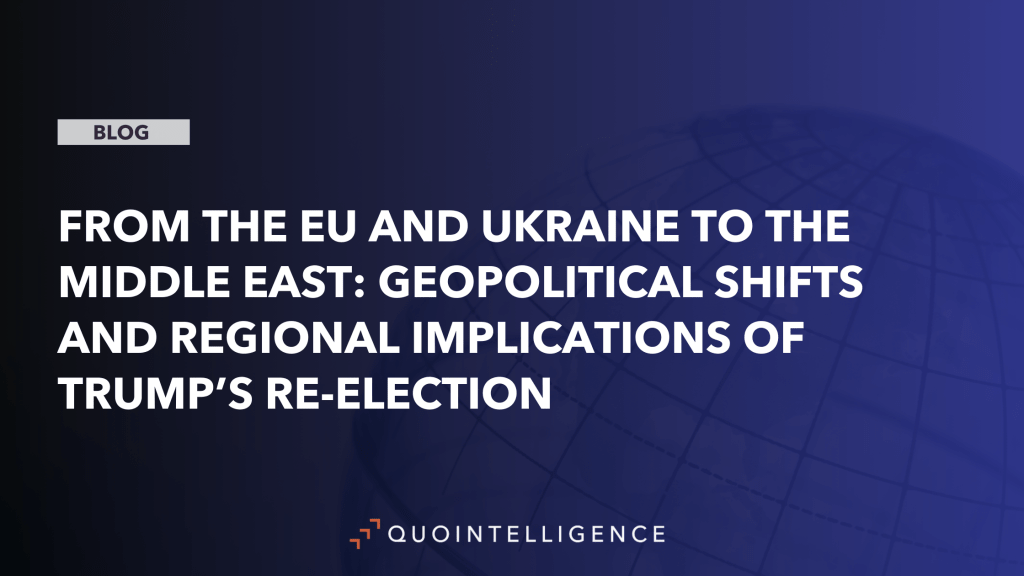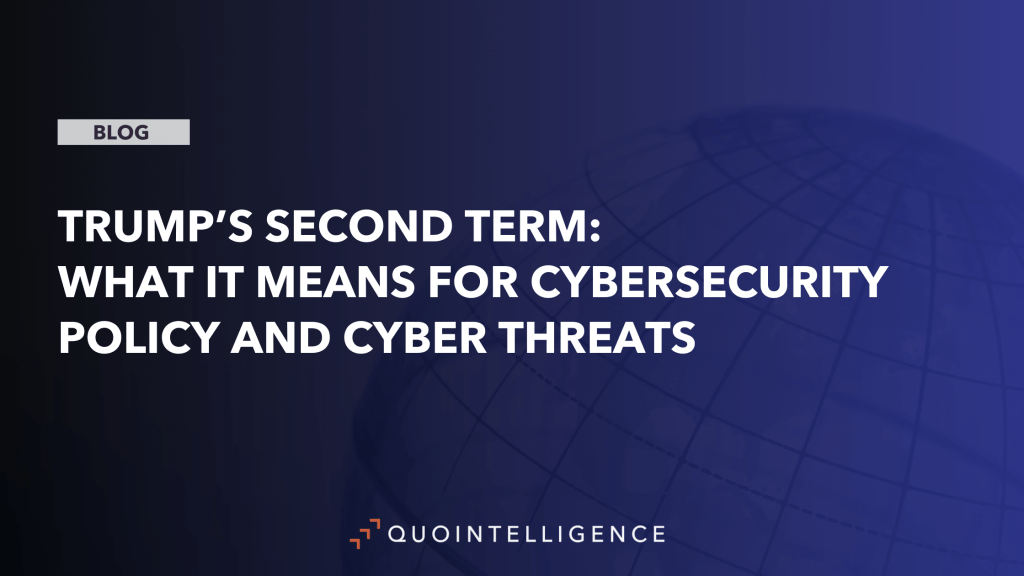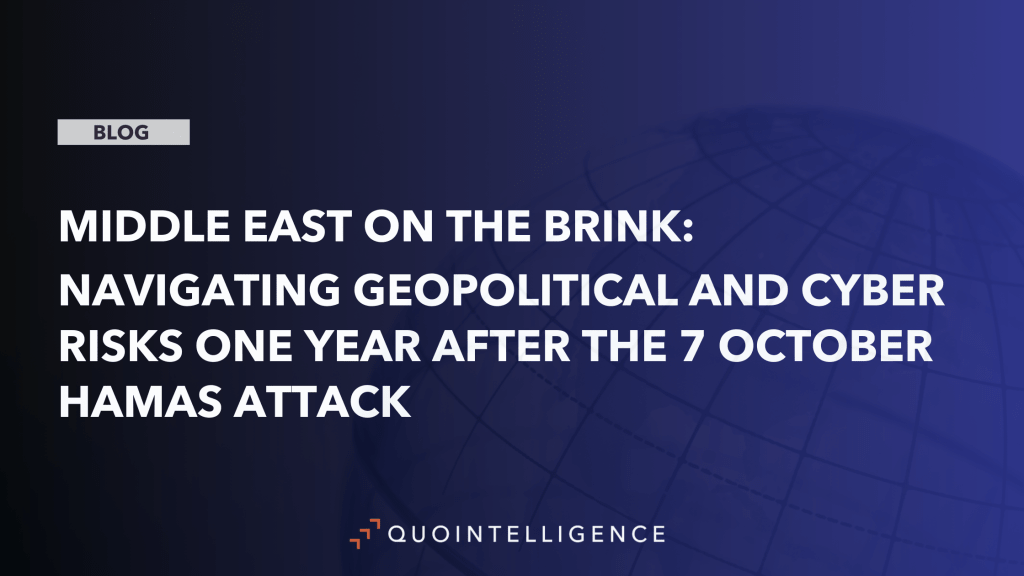Navigating Evolving Threats in 2025: eCrime Ecosystem Adapts and Proliferates, Geopolitical Volatility To Fuel Cyber Threats

QuoIntelligence forecasts the 2025 cyber threat landscape, assessing likely evolutions of the eCrime ecosystem and the impact of geopolitical dynamics on the cyber threat landscape.
From the EU and Ukraine to the Middle East: Geopolitical Shifts and Regional Implications of Trump’s Re-Election

Donald Trump’s second term as the 47th President will influence world’s affairs. QuoIntelligence explores anticipated shifts in US foreign and trade policies, offering insights into the implications for Europe, the war in Ukraine, and the Middle East.
Trump’s Second Term: What It Means for Cybersecurity Policy and Cyber Threats

Donald Trump’s second term as the 47th President will influence US cybersecurity policy and the global threat landscape. QuoIntelligence explores projected shifts in cybersecurity policy priorities, heightened risks from state-sponsored threat actors, and the implications for organizations in strategic sectors.
Threat Intelligence Snapshot: Week 44, 2024

CISA Warns of Active Exploitation of Critical FortiOS RCE Vulnerability | US Deputy National Security Advisor Urges Insurers To End Ransomware Payment Incentives
Threat Intelligence Snapshot: Week 43, 2024

CISA Warns of Active Exploitation of Critical FortiOS RCE Vulnerability | US Deputy National Security Advisor Urges Insurers To End Ransomware Payment Incentives
From Geopolitics to Cyber Threats: Russia, China, Iran, and North Korea’s View on the 2024 US Election

The 2024 US presidential election is a key event in global geopolitics, with Russia, China, Iran, and North Korea all eyeing it as an opportunity to advance their strategic interests. From cyber espionage to disinformation campaigns, these nations are likely to engage in state-sponsored cyber activities aimed at influencing election outcomes and shifting US foreign policy.
Threat Intelligence Snapshot: Week 42, 2024

CISA Warns of Active Exploitation of Critical FortiOS RCE Vulnerability | US Deputy National Security Advisor Urges Insurers To End Ransomware Payment Incentives
Threat Intelligence Snapshot: Week 41, 2024

CISA Warns of Active Exploitation of Critical FortiOS RCE Vulnerability | US Deputy National Security Advisor Urges Insurers To End Ransomware Payment Incentives
Threat Intelligence Snapshot: Week 40, 2024

Rhadamanthys Stealer Introduces Innovative AI-Driven Features | Regional Tensions in the Middle East At Their Highest Point Since the Beginning of the Crisis
Middle East on the Brink: Navigating Geopolitical and Cyber Risks One Year After the 7 October Hamas Attack

One year after the unprecedented Hamas attack on Israel, the Middle East remains a hotspot of geopolitical tensions and cyber threats. As Israel engages in multiple fronts, from Gaza to Lebanon, and faces rising cyberattacks from Iranian-backed groups, the region is at a critical point. This article analyzes the ongoing conflict, the risks of regional escalation, and the surge in cyber warfare, offering insights into future security developments in this volatile landscape.